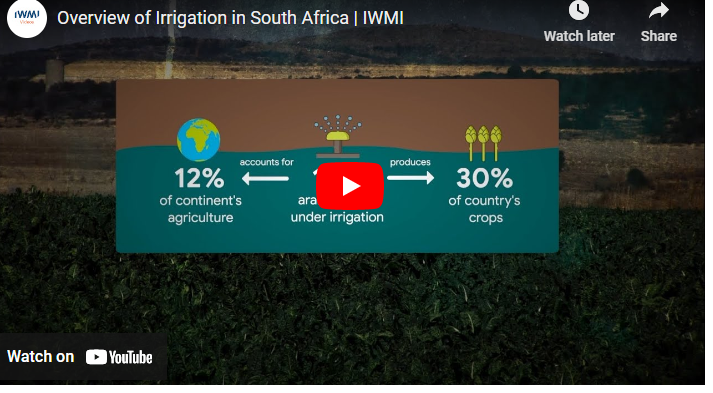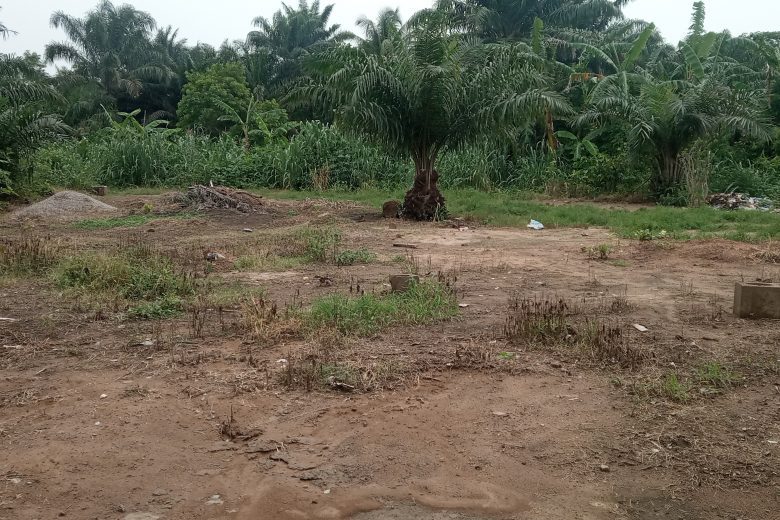Starting a small scale farming business can be a fulfilling and rewarding experience, both financially and personally. However, it can also be a daunting task, especially for beginners who have no prior experience in farming.
The good news is that with the right guidance, resources, and planning, anyone can start a small scale farming business successfully.
This may involve identifying the right crops or livestock to farm, securing land and resources, obtaining necessary permits and licenses, and marketing the products.
Additionally, it is essential to understand the market demand for the produce, as well as the risks and challenges involved in farming.
How To Start Small Scale Is Farming Business
Starting a small scale farming business can be a rewarding and fulfilling venture. Here are some general steps to consider when starting a small scale farming business:
Step 1: Determine your Niche
Before starting a small scale farming business, it’s important to determine your niche. Do you want to focus on livestock or crops?
This decision will impact the type of land you need, the equipment you will need to purchase or rent, and the skills and knowledge required to manage your farm.
If you choose to focus on livestock, consider the type of animals you want to raise and how you will care for them.
Read Also: 12 Factors to Consider When Starting A Farm [Complete Guide]
If you choose to focus on crops, consider the types of plants that will grow well in your area and the market demand for these products.
Step 2: Conduct Research
Once you have determined your niche, conduct thorough research to learn about the market demand for the products you want to grow, the farming techniques used, and the necessary permits and licenses you may need.
This research will help you to make informed decisions about what to grow, how to grow it, and how to market your products.
Also, you can connect with other farmers in your area or industry experts to gain valuable insights and advice.
Read Also: [Beginners Guide] How To Start A Farm From Scratch
By conducting thorough research, you will be better prepared to start and grow a successful small scale farming business.
Step 3: Develop a Business Plan
To develop a comprehensive business plan, start by outlining your farming goals, such as the types of crops or livestock you want to raise and the scale of your operation.
Then, conduct market research to determine the demand for your products and identify potential customers. This will also help you set prices and estimate revenue.
Next, create a budget that includes all of your start-up and ongoing expenses, such as equipment, supplies, labor, and marketing costs. Don’t forget to factor in any necessary permits and licenses you may need.
Use this information to create a financial projection that estimates your revenue and expenses over the next few years. This will help you determine if your business is financially viable and set realistic growth targets.
A well-developed business plan is essential for securing funding and making informed decisions as you launch and grow your small scale farming business.
Step 4: Obtain Necessary Permit (optional)
Before starting your small scale farming business, it is important to determine if any permits or licenses are required in your area.
This will depend on your location and the type of farming you want to venture into. Contact your local government or agricultural agency to find out about the necessary permits and licenses required for your farm.
Obtaining these permits may take time, so it is important to start the process early. Having the necessary permits and licenses will ensure that you are operating legally and can help you avoid fines or legal issues in the future.
Step 5: Select your Location
When selecting a location for your small-scale farming business, it’s important to choose land that is suitable for the type of crop or livestock you want to raise.
Look for areas with fertile soil, access to water, and good drainage. Consider the climate and weather patterns in your area, as well as any zoning regulations or restrictions that may affect your farming activities.
Once you have identified a suitable location, you will need to secure the land and obtain the necessary permits and licenses.
If you plan to buy land, consider the costs associated with purchasing and maintaining the property. If you plan to lease land, be sure to negotiate favorable terms and ensure that the property meets your needs.
In addition to securing land, you will need to purchase or lease equipment and tools necessary for farming activities, such as tractors, irrigation systems, and hand tools.
Consider starting small and expanding your equipment as your business grows to avoid overspending on equipment that you may not need immediately.
Step 6: Acquire Equipment
Purchase or lease necessary equipment such as tractors, irrigation systems, hand tools, and any other equipment specific to your farming niche.
Consider buying used equipment to save money or renting equipment if you have a limited budget. Take good care of your equipment to ensure it lasts long and functions properly.
Step 7: Develop A Marketing Strategy
To develop a marketing strategy for your small-scale farming business, consider the preferences and behaviors of your target market.
Research the demand for your products and identify potential customers, such as local restaurants or specialty food stores.
You can also sell your products directly to consumers through farmer’s markets or online marketplaces. Consider building relationships with local businesses and community organizations to help promote your products.
Also, create a website or social media presence to showcase your products and connect with potential customers.
With a solid marketing strategy in place, you can effectively promote and sell your products to grow your business.
Step 8: Start Farming
Congratulations, you’re now ready to start your small-scale farming business! This is where all your planning and preparation come into play.
Begin by planting your crops or raising your livestock using the techniques you have learned in your research.
Make sure to keep track of all expenses and income to ensure that you are staying within budget and meeting your financial projections.
It’s important to be patient and persistent as farming can take time and effort to be successful.
Step 9: Sell your Produce
you’ve successfully grown your crops or raised your livestock! Now it’s time to sell your produce. You can sell directly to customers through farmers’ markets, roadside stands, or online marketplaces.
You can also sell to local stores and restaurants or consider joining a local food co-op. Make sure to price your products competitively and create an attractive and recognizable brand to build customer loyalty.
Don’t forget to keep accurate records of your sales and expenses to help you plan for future growth and profitability.
Remember to keep marketing and selling your products, building relationships with customers, and adapting your strategies as needed. Best of luck with your new venture!
Factors to Consider When Starting a Small Scale Farm
Starting a small scale farm can be a rewarding experience, but it requires careful planning and consideration of several factors. These factors include:
- Farm size and location: The size and location of your farm will determine what types of crops or livestock you can raise, as well as the equipment and infrastructure needed.
- Soil quality and climate: The quality of your soil and the climate in your area will determine what crops you can grow and when.
- Market demand: Research the demand for your chosen products in your local market and ensure you have a plan for selling your produce or livestock.
- Budget: Determine your startup costs and ongoing expenses, including land, equipment, seed, and animal feed.
- Legal requirements: Research any necessary permits or licenses required to operate a farm in your area.
Benefit of Small Scale Farming
Small scale farming has several benefits, including:
- Environmental sustainability: Small scale farms often prioritize sustainable farming practices that protect the environment and natural resources.
- Healthier produce: Small scale farmers often grow crops using organic and sustainable methods, resulting in healthier and more nutritious produce.
- Community building: Small scale farms can help build a sense of community by providing locally-grown produce and supporting local economies.
- Lifestyle benefits: Small scale farming can offer a fulfilling lifestyle that involves working outdoors and living close to nature.
Challenges of Small Scale Farming
Small scale farming also presents several challenges, including:
- Limited resources: Small scale farmers often have limited access to resources such as land, equipment, and labor, which can make farming more difficult.
- Market competition: Small scale farmers may face competition from larger, industrial farms that can produce and sell products at a lower cost.
- Financial challenges: Starting a small scale farm can be expensive, and it may take several years to turn a profit.
- Unpredictable weather: Farmers are at the mercy of weather patterns, which can be unpredictable and affect crop yields.
Best Practices for Small Scale Farming
To overcome these challenges and succeed in small scale farming, there are several best practices to follow:
- Choose crops that are well-suited to your soil and climate.
- Prioritize sustainable farming practices that protect the environment and natural resources.
- Build relationships with your local community by selling your produce at farmers’ markets and connecting with local restaurants and stores.
- Invest in equipment and infrastructure that will help streamline your farming processes and improve efficiency.
- Continuously educate yourself on the latest farming techniques and best practices to ensure your farm remains successful and sustainable.
How to Start a Small Farm with Animals
Starting a small farm with animals can be a rewarding experience, but it requires careful planning and preparation. Here are some steps to consider:
- Determine the type of animals you want to raise and the purpose (meat, milk, eggs, wool, etc.)
- Research the market demand and potential profitability of your chosen animals in your area.
- Secure suitable land, fencing, and shelter for the animals.
- Obtain any permits and licenses required from local and state authorities.
- Purchase or acquire the animals from a reputable source.
- Develop a feeding and care plan for the animals, including proper nutrition, vaccinations, and veterinary care.
- Decide on a marketing strategy for your animal products.
- Continuously monitor and adjust your operations to ensure the health and well-being of your animals and the profitability of your farm.
How to Start a Small Farm for Profit
- Starting a small farm for profit requires a solid business plan and careful consideration of various factors. Here are some steps to consider:
- Determine the type of crops or animals you want to produce and research the market demand and potential profitability in your area.
- Develop a detailed business plan that includes your farming goals, target market, budget, and financial projections.
- Secure suitable land and equipment, and consider starting small and expanding as your business grows.
- Acquire any essential licenses and permits from the relevant state and local government authorities.
- Develop a marketing strategy that includes pricing, promotion, and distribution channels.
- Continuously monitor and adjust your operations to ensure the profitability and sustainability of your farm.
How to Register Your Farm as a Business
Registering your farm as a business can provide numerous benefits, including liability protection and access to certain financial resources.
Here are some steps to consider:
- Select a business structure, including sole proprietorship, partnership, LLC, or corporation.
- Register your business with the relevant state authorities and obtain any required licenses or permits.
- Obtain an Employer Identification Number (EIN) from the IRS.
- Keep detailed records of your business finances, including income and expenses.
- Ensure that your taxes are filed accurately and promptly.
How to Start a Small Farm with No Money
Starting a small farm with no money can be challenging, but it is possible with some creativity and resourcefulness.
Here are some steps to consider:
- Start small and focus on low-cost or free methods, such as using recycled materials for shelter and fencing or bartering for resources and labor.
- Utilize available resources, such as community gardens, land trusts, or government programs for beginning farmers.
- Consider alternative financing options, such as grants, loans, or crowdfunding.
- Build relationships with local businesses and consumers to create a market for your products.
- Continuously seek out opportunities for learning and networking in the farming community.
How to Start a Farm from Scratch
Starting a farm from scratch can be a daunting task, but it is possible with careful planning and hard work.
Here are some steps to consider:
- Determine the type of farming you want to do and research the market demand and potential profitability in your area.
- Secure suitable land, and consider factors such as soil quality, water availability, and climate.
- Develop a detailed business plan that includes your farming goals, target market, budget, and financial projections.
- Acquire all essential licenses and permits from state and local governing bodies.
- Acquire the necessary equipment and resources, and consider starting small and expanding as your business grows.
- Develop a marketing strategy that includes pricing, promotion, and distribution channels.
- Continuously monitor and adjust your operations to ensure the profitability and sustainability of your farm.
Top of Form
I Want To Be a Farmer Where Do I Start
If you have a passion for farming and want to start a career as a farmer, there are several steps you can take to get started:
- Identify Your Interests: Determine what type of farming you’re interested in, such as crop farming, livestock farming, or organic farming.
- Gain Knowledge and Experience: Learn as much as you can about farming by taking classes, reading books, and working on farms. Volunteer at a local farm or seek out internships or apprenticeships.
- Create a Business Plan: Develop a detailed business plan that outlines your goals, target market, budget, and financial projections. This plan will guide you through the process of starting and growing your farm.
- Secure Funding: Consider different funding options such as loans, grants, or crowdfunding to help start your farm.
- Find Land: Secure land to farm on, whether it’s through purchase, lease, or land-sharing agreements.
- Obtain Necessary Permits and Licenses: Depending on your location and type of farming, you may need to obtain permits and licenses from local and state authorities.
- Start Small: Begin with a small operation and gradually expand as your business grows.
Conclusion
Starting a small scale farming business requires dedication, hard work, and a willingness to learn and adapt. With careful planning and execution, however, it can be a profitable and rewarding venture.



